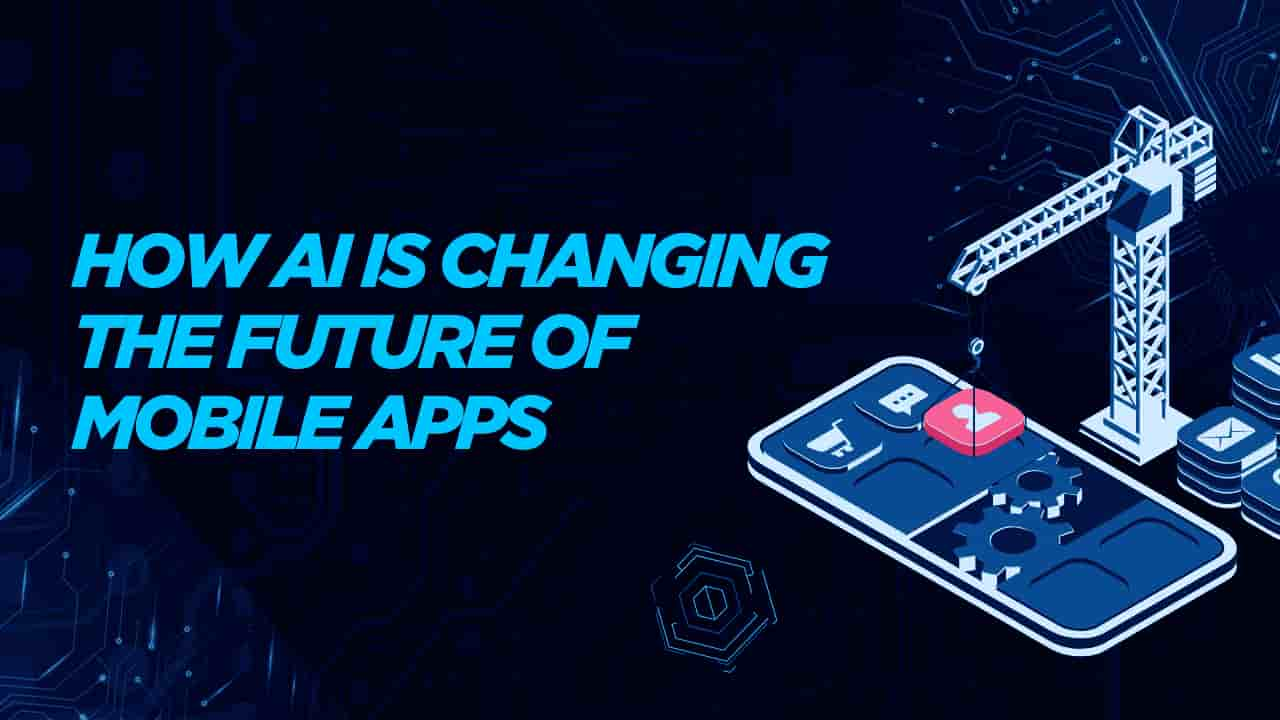Introduction
Artificial Intelligence (AI) is revolutionizing various industries, and the mobile app sector is no exception. With AI integration, mobile apps are becoming more intelligent, personalized, and efficient than ever before. From AI-powered chatbots to voice assistants and predictive analytics, AI is shaping the future of mobile applications in unimaginable ways.
In this article, we will explore how AI is transforming mobile app development, the key AI-driven innovations, and the future of AI in mobile applications.
Read more: Latest Tech News: Major Breakthroughs in (2025)
1. AI-Driven Personalization in Mobile Apps
One of the most significant changes AI brings to mobile apps is hyper-personalization. AI algorithms analyze user behavior, preferences, and past interactions to deliver customized content and recommendations.
Examples:
- Netflix & YouTube: AI-driven recommendation engines suggest content based on user viewing history.
- Spotify & Apple Music: Personalized playlists generated using AI-powered algorithms.
- E-commerce Apps: AI tracks user behavior to suggest relevant products.
Benefits:
✅ Improved user engagement and retention.
✅ Higher customer satisfaction.
✅ More efficient content delivery.
2. AI-Powered Chatbots & Virtual Assistants
AI-powered chatbots and virtual assistants have become an integral part of modern mobile applications. They provide instant customer support, automate responses, and enhance user experience.
Popular AI Assistants:
- Siri (Apple) – Voice assistant integrated into iOS devices.
- Google Assistant – Provides voice search and automation features.
- Amazon Alexa – AI assistant for smart home and mobile devices.
Benefits:
✅ 24/7 customer support.
✅ Faster response time.
✅ Cost-effective for businesses.
3. AI in Mobile App Security
With cyber threats increasing, AI is playing a crucial role in enhancing mobile app security. AI-based algorithms can detect fraudulent activities, identify threats, and prevent data breaches.
How AI Enhances Security:
- Biometric Authentication: AI-powered face recognition and fingerprint scanning.
- Fraud Detection: AI identifies suspicious transactions in banking apps.
- Threat Analysis: AI monitors unusual activities in real time.
Examples:
- Face ID (Apple) – AI-based facial recognition for secure authentication.
- Google Play Protect – AI-driven malware detection for Android apps.
Benefits:
✅ Enhanced app security.
✅ Reduced risk of fraud.
✅ Improved user trust.
4. AI-Powered Voice & Image Recognition
Voice and image recognition are two of the most popular AI-powered features in mobile applications today. AI-driven voice search, facial recognition, and object detection have made mobile devices smarter and more interactive.
Examples:
- Google Lens – Uses AI to recognize objects and text in images.
- Snapchat Filters – AI-powered facial recognition for AR filters.
- Shazam – Identifies music using AI-powered sound analysis.
Benefits:
✅ Hands-free operation for convenience.
✅ Enhanced accessibility for visually impaired users.
✅ Interactive user experiences.
5. AI-Powered Predictive Analytics
AI-based predictive analytics is helping businesses make data-driven decisions by forecasting trends, user behavior, and app performance.
How It Works:
- E-commerce Apps: AI predicts what products users may buy next.
- Healthcare Apps: AI forecasts potential health issues based on symptoms.
- Finance Apps: AI provides investment insights and risk assessments.
Benefits:
✅ Better business decision-making.
✅ Increased revenue opportunities.
✅ Improved customer experiences.
6. AI in Gaming & Augmented Reality (AR)
The gaming industry has seen a massive transformation with the integration of AI in game development, NPC behavior, and real-time decision-making.
AI in Gaming:
- Smart NPCs: AI-controlled characters that adapt to player actions.
- Procedural Content Generation: AI generates new levels and game experiences dynamically.
- AI-Powered AR Apps: Pokemon GO and Snapchat use AI to enhance AR experiences.
Benefits:
✅ More engaging and immersive gaming experiences.
✅ Real-time AI-based adaptability.
✅ Personalized gaming challenges.
Read more: The Future of AI in Mobile Apps in 2025
Q&A Section
Q1: How is AI improving mobile app user experiences?
AI enhances user experiences by providing personalized recommendations, predictive text input, voice search, and AI-powered chatbots, making mobile apps smarter and more intuitive.
Q2: What are the best AI-powered mobile apps today?
Some of the best AI-powered mobile apps include:
- Google Assistant (Voice AI & Smart Automation)
- Netflix (AI-based content recommendations)
- Face ID (Apple) (AI-driven security)
- Google Lens (AI-powered image recognition)
Q3: Is AI in mobile apps safe for user data?
Yes, AI enhances security through biometric authentication, fraud detection, and malware protection. However, users must ensure that apps follow strict data privacy regulations.
Q4: What are the future trends of AI in mobile app development?
Future AI trends in mobile apps include:
- Advanced voice assistants with emotional intelligence.
- AI-driven real-time translation apps.
- 5G-powered AI mobile experiences.
- More AI-powered AR & VR apps.
Q5: How can businesses integrate AI into their mobile apps?
Businesses can integrate AI by leveraging chatbots, machine learning models, AI-driven analytics, and automation tools to improve user engagement, security, and efficiency.
Conclusion
AI is transforming the future of mobile applications by making them more intelligent, secure, and user-friendly. From AI-powered personalization to security enhancements and predictive analytics, AI-driven mobile apps are setting new standards in the industry.
As AI technology continues to evolve, the future of mobile apps will be even more innovative, making our smartphones smarter than ever. Businesses and developers who embrace AI will stay ahead in the competitive mobile app market.


Эта публикация погружает вас в мир увлекательных фактов и удивительных открытий. Мы расскажем о ключевых событиях, которые изменили ход истории, и приоткроем завесу над научными достижениями, которые вдохновили миллионы. Узнайте, чему может научить нас прошлое и как применить эти знания в будущем.
Углубиться в тему – https://vyvod-iz-zapoya-1.ru/